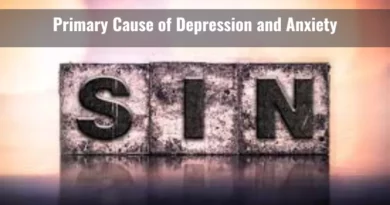Criminal behavior stems from a complex interplay of factors. Psychologists explore motivations (like greed and revenge), personality traits (impulsivity, lack of empathy), and thought patterns (justification, distorted thinking). Social and environmental influences (poverty and exposure to violence) also play a role.
For decades, psychologists and criminologists have been interested in the criminal mindset. While no one-size-fits-all definition of a criminal mindset exists, specific behavior patterns, thought processes, and emotional responses are commonly associated with criminal behavior. Understanding the psychology behind criminal behavior is crucial in developing effective prevention strategies, identifying at-risk individuals, and providing appropriate interventions to help reduce the likelihood of illegal activity. This blog post will explore the symptoms and causes of criminal mindset psychology.
I. Symptoms of Criminal Mindset Psychology

It’s important to note that there is no one-size-fits-all description of a “criminal mindset” and that criminal behavior is a complex phenomenon influenced by various social, environmental, and psychological factors.
Researchers and experts in the field of criminology have identified some potential signs or symptoms of a criminal mindset, including:
- Lack of empathy: Criminals may have difficulty empathizing with others and may not feel remorse for their actions.
- Impulsivity: Criminals may act impulsively and without thinking about the consequences of their actions.
- Low self-control: Criminals may have difficulty controlling their behavior and engage in impulsive or reckless behavior.
- Aggressiveness: Criminals may be more likely to engage in aggressive or violent behavior.
- Narcissism: Criminals may have an inflated sense of self-importance and believe they are entitled to break the law or engage in criminal behavior.
- Manipulative behavior: Criminals may use manipulation to achieve their goals or to control others.
- Substance abuse: Criminals may be more likely to engage in drug or alcohol abuse, which can lead to criminal behavior.
It’s important to remember that these traits alone do not necessarily indicate criminal behavior or a criminal mindset and that many people who exhibit these traits do not engage in criminal activity. Note that genetics or other factors do not predetermine criminal behavior, and individuals can overcome these tendencies and make positive life choices.
II. Causes of Criminal Mindset Psychology
The “criminal mindset” is not a scientifically recognized concept or term in psychology. However, various theories and research exist on the psychology of criminal behavior. Here are some general points related to criminal psychology:
A. Antisocial personality traits
Antisocial personality traits are considered one of the significant causes of criminal mindset psychology. These individuals often have difficulty controlling their impulses and exhibit impulsive behavior without thinking about the consequences of their actions. They tend to act on their emotions, leading to aggressive behavior toward others, and they may resort to violence to resolve conflicts.
Moreover, individuals with criminal tendencies may lack empathy and have difficulty understanding or caring about the feelings of others. They may also lack a sense of remorse or guilt for their actions, even when they harm others. This lack of empathy and remorse can make it easier for them to commit crimes and justify their actions to themselves.
Furthermore, individuals with criminal tendencies often disregard social norms and rules, which can lead to deviant behavior. They may feel entitled and believe they can do whatever they want without consequence. This disregard for rules can manifest in various forms of criminal behavior, such as theft, fraud, or even violent crimes.
Overall, individuals with antisocial personality traits are more likely to engage in criminal behavior due to their impulsive nature, lack of empathy or remorse, and disregard for social norms. Understanding these causes is essential to developing effective strategies for preventing and treating criminal behavior.
B. Childhood experiences

Childhood experiences significantly impact the development of an individual’s psychology and behavior. Children who have experienced abuse, neglect, or violence are more likely to develop a criminal mindset later. These traumatic experiences can shape a child’s worldview and perceptions, leading to anger, resentment, and hostility toward others.
Children who have experienced abuse may struggle with trust issues and develop a heightened suspicion toward others. This can lead to a distorted view of the world and difficulty forming healthy relationships. Neglect, on the other hand, can leave a child feeling unloved and unwanted, leading to low self-esteem and a lack of empathy toward others.
Exposure to violence during childhood can have a particularly significant impact on a child’s psychology. Witnessing violence can lead to a desensitization to violent behavior and make it seem like an acceptable way to resolve conflicts. It can also lead to fear and a desire to protect oneself, which may manifest in aggressive or violent behavior toward others.
Overall, childhood experiences can shape an individual’s mindset and predispose them toward criminal behavior. It is essential to recognize the impact of childhood trauma and provide appropriate support and intervention to prevent the development of criminal behavior.
C. Social influences
Social influences can significantly impact the development of a criminal mindset. Peer pressure, for example, can lead individuals to engage in criminal behavior to fit in with a particular group or gain acceptance from their peers. Additionally, the family environment can also be a factor, as children raised in homes where criminal behavior is normalized or accepted may be more likely to engage in criminal activities themselves.
Cultural factors can also contribute to the development of a criminal mindset. For example, in some communities, engaging in criminal activities may be seen as a way of achieving social status or respect. Furthermore, societal inequality, discrimination, and poverty can create an environment that fosters criminal behavior, as individuals may turn to criminal activities for survival or economic advancement.
It is essential to recognize that while social influences can contribute to developing a criminal mindset, they do not necessarily determine an individual’s behavior. Many people can resist negative social impacts and make positive choices, even under challenging circumstances. However, understanding the role that social factors can play in the development of criminal behavior can help us identify and address the root causes of criminal activity and develop more effective strategies for prevention and intervention.
D. Cognitive distortions

Cognitive distortions are a common cause of criminal mindset psychology. These are thinking patterns that are distorted, irrational, and often self-serving. Criminals with these distorted thinking patterns may feel entitled, believing they can break the law or take what they want. They may also rationalize their criminal behavior, finding ways to justify it to themselves and others. This rationalization can handle many forms, such as blaming the victim or minimizing the harm caused by their actions.
In some cases, criminals may even convince themselves that their actions are morally justified despite the harm they cause to others. These cognitive distortions can make it easier for criminals to engage in criminal behavior and avoid feelings of guilt or remorse. Over time, these thinking patterns can become deeply ingrained and difficult to change, making it more challenging for individuals with criminal mindset psychology to reform and lead productive, law-abiding lives.
E. Substance abuse
It is a well-known cause of criminal mindset psychology. Substance abuse can alter the brain’s chemistry and impair cognitive functions, leading to irrational behavior, poor decision-making skills, and aggressive tendencies. It can contribute to criminal behavior when combined with other psychological factors, such as impulse control issues and a lack of empathy.
Substance abuse may also worsen pre-existing mental health issues like depression, anxiety, and personality disorders. These underlying conditions may make an individual more prone to criminal behavior, and substance abuse can further increase the risk. Substance abuse can also impair an individual’s ability to cope with stressors and challenges in life, leading them to turn to criminal activity as a coping mechanism.
Furthermore, substance abuse can create a cycle of addiction and criminal behavior. Individuals may turn to criminal activity to obtain the money or resources necessary to support their addiction. In turn, criminal activity may expose them to new substances or trigger further abuse, perpetuating the cycle.
Overall, substance abuse is a complex issue that can contribute to criminal mindset psychology. It is crucial to address substance abuse and provide support and treatment to those struggling with addiction to prevent the development of criminal behavior.
F. Environmental factors
The environment in which an individual grows up can play a crucial role in shaping their behavior and psychology. Poverty, for instance, can lead to a lack of access to basic needs such as food, shelter, and healthcare, resulting in hopelessness and desperation. This, in turn, can make individuals more vulnerable to criminal activities as they may resort to theft, drug dealing, or other illegal means to make ends meet.
Furthermore, the lack of education and employment opportunities can also contribute to the development of criminal behavior. Without adequate education, individuals may struggle to find stable and well-paying jobs, leading to frustration and a lack of purpose. This can make individuals more likely to engage in criminal activities as they seek to earn money quickly and easily.
Living in high-crime areas can also increase the likelihood of criminal behavior. Violence and criminal activities are commonplace in such places, and individuals may become desensitized to such behaviors. They may also feel pressure to engage in criminal activities to fit in with their peers or protect themselves from harm.
Overall, environmental factors can significantly impact an individual’s psychology and increase the likelihood of criminal behavior. Addressing these factors through policies that aim to alleviate poverty, improve education and employment opportunities, and reduce crime in high-crime areas can help prevent the development of criminal mindsets.
G. Psychological disorders

Psychological disorders can play a significant role in developing a criminal mindset. Mental health conditions such as psychopathy, sociopathy, or borderline personality disorder are associated with an increased risk of criminal behavior. Individuals with these disorders may exhibit impulsive or reckless behaviors, a lack of empathy or remorse for their actions, and a disregard for the rights and well-being of others.
Additionally, some individuals with mental health disorders may experience social isolation, low self-esteem, or feelings of inadequacy, leading to frustration, anger, or a desire for power and control. These factors, combined with a lack of appropriate treatment or support, can contribute to developing a criminal mindset and increase the likelihood of engaging in criminal activities. It is essential to address mental health issues promptly and provide appropriate treatment to reduce the risk of criminal behavior and promote positive mental health outcomes.
It’s important to note that these factors do not necessarily lead to criminal behavior in every case, and criminal behavior is often the result of a complex interaction of various factors. Not all individuals with these traits or experiences also engage in criminal behavior.
III. Take Away
Psychological disorders can play a significant role in developing a criminal mindset. Mental health conditions such as psychopathy, sociopathy, or borderline personality disorder are associated with an increased risk of criminal behavior. Individuals with these disorders may exhibit impulsive or reckless behaviors, a lack of empathy or remorse for their actions, and a disregard for the rights and well-being of others.
Additionally, some individuals with mental health disorders may experience social isolation, low self-esteem, or feelings of inadequacy, leading to frustration, anger, or a desire for power and control. These factors, combined with a lack of appropriate treatment or support, can contribute to developing a criminal mindset and increase the likelihood of engaging in criminal activities. It is essential to address mental health issues promptly and provide appropriate treatment to reduce the risk of criminal behavior and promote positive mental health outcomes.
IV. FAQs About Criminal Mindset Psychology
1. What is criminal mindset psychology study?
Criminal mindset psychology studies the psychological factors that contribute to criminal behavior. It examines criminals’ thoughts, emotions, motivations, and experiences to understand why they engage in unlawful activities. This field also considers personality traits, cognitive processes, and environmental influences that might increase someone’s risk of crime.
2. What are some common traits of individuals with a criminal mindset?
Common traits of individuals with a criminal mindset include impulsivity, low empathy, a lack of remorse or guilt, a tendency to blame others for their problems, a disregard for the rights of others, and a willingness to engage in risk-taking behavior.
3. Can a person’s upbringing influence their criminal mindset?
Yes, a person’s upbringing can influence their criminal mindset. Exposure to violence, abuse, neglect, or other adverse childhood experiences can increase the likelihood of criminal behavior later in life. In addition, parenting styles that are authoritarian, neglectful, or permissive can also contribute to the development of a criminal mindset.
4. Are there any biological factors that can contribute to a criminal mindset?
Yes, there are biological factors that can contribute to a criminal mindset. For example, some research suggests that abnormalities in brain structure or function and imbalances in neurotransmitter systems can increase the risk of criminal behavior.
5. Can a person with a criminal mindset change?
Yes, a person with a criminal mindset can change. Psychotherapy, cognitive-behavioral therapy, and other forms of psychological treatment can be effective in helping individuals to develop more adaptive patterns of thinking, feeling, and behaving. However, treatment success depends on various factors, including the individual’s motivation, the severity of their criminal behavior, and the quality of the therapeutic relationship.
6. Can criminal mindset psychology be used to prevent crime?
Using criminal mindset psychology can prevent crime by identifying individuals at risk for criminal behavior and developing interventions that target the underlying psychological factors contributing to criminal activity. However, programs focusing on building empathy and increasing self-control and research have shown that individuals who improve their decision-making skills are less likely to engage in criminal behavior.










Comments are closed.